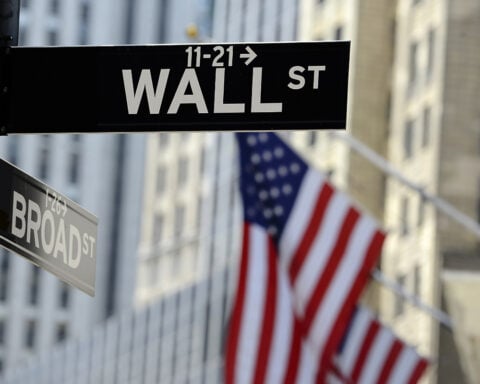Wall Street stocks experienced a downturn on Wednesday morning, perpetuating a slump in this holiday-shortened week.
The S&P 500 dipped by 0.7%, with a marginally greater number of companies declining than advancing within the index. By 10:46 a.m. Eastern, the Dow Jones Industrial Average had retreated by 163 points, or 0.5%, landing at 34,479. Meanwhile, the Nasdaq saw a decrease of 0.9%.
Tech giants experienced notable declines, exerting pressure on the overall market. Apple, for instance, went down by 2.7%. The healthcare sector also witnessed considerable losses, with Johnson & Johnson decreasing by 1.9% and Pfizer by 2%.
In terms of earnings reports and updates, some companies saw significant shifts. Roku’s stock soared by 8.1% after a positive financial update and an announcement of a 10% staff reduction. AeroVironment, a producer of unmanned aircraft, spiked 27.8% after raising its annual sales forecast.
European markets trended downwards while Asian markets displayed mixed results.
Post-market results from GameStop and Dave & Buster’s are anticipated after the day’s closing.
Following the U.S. Labor Day holiday and an eventful August, investors are gearing up for a comparatively calm week.
The U.S. services sector continues to thrive, as indicated by a survey from The Institute for Supply Management. This sector, a significant component of the U.S. economy and a primary employer for many Americans, expanded in August at a rate surpassing economist predictions. Despite ongoing inflation and interest rate challenges in 2023, this sector has shown commendable resilience.
The release of the survey led to an uptick in bond yields. The yield for the 10-year Treasury, which impacts various loan interest rates, advanced from roughly 4.25% to 4.29%. Similarly, the yield of the 2-year Treasury, reflecting Federal Reserve anticipations, rose from 4.96% to 5.03%.
The financial landscape remains heavily influenced by inflation and interest rates. The Federal Reserve has raised rates to curb inflation. However, with inflation moderating recently, investors anticipate softer interest rate hikes from the Fed.
The prevalent sentiment is that the Fed will retain its current interest rate in the upcoming September meeting, and most anticipate this status quo to persist throughout the year. The last week’s data on consumer trust, employment, and inflation strengthens this outlook.
Owing to the Fed’s assertive rate increments initiated in 2022, inflation has been waning. This policy took the primary interest rate to a peak not seen since 2001, sparking worries about the potential for an economic slowdown or even recession. Yet, a robust job market and steady consumer expenditure have buoyed the economy, preventing a recession for now. Before the next Fed meeting, Wall Street is set to receive more economic insights on inflation and retail sales this September.
In summary, Wall Street’s performance, influenced by various factors including tech giants’ decline, earnings reports, and overarching economic themes, indicates a cautious optimism among investors. With the U.S. services sector showing resilience and the Federal Reserve’s anticipated decisions, the financial landscape is at a pivotal juncture. As September unfolds, key economic updates will provide more clarity, helping investors navigate a complex financial environment.







